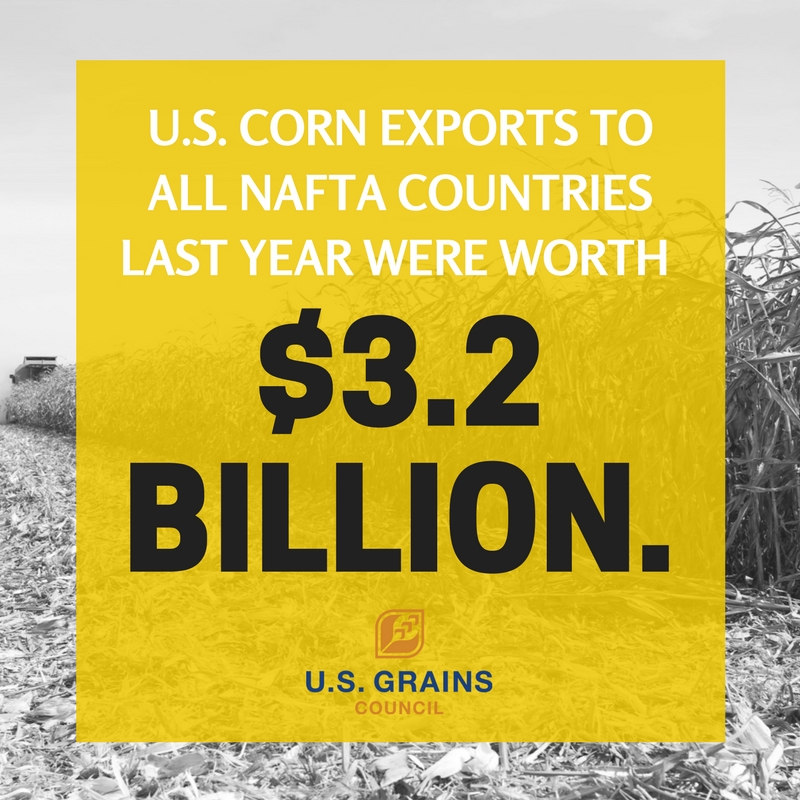Trade and U.S. leadership in the global economy have been hot topics during a busy last week, including the renegotiations of the North American Free Trade Agreement (NAFTA) in Canada, opening talks in modernizing the United States–Korea Free Trade Agreement (KORUS), the World Economic Forum in Davos, Switzerland, and President Donald Trump’s State of the Union speech.
The sixth round of NAFTA negotiations ended in Montreal with no firm conclusions but with commitments to come back to the table in late February for a seventh round in Mexico City.
Trade and U.S. leadership in the global economy have been hot topics during a busy last week, including the renegotiations of the North American Free Trade Agreement (NAFTA) in Canada, opening talks in modernizing the United States–Korea Free Trade Agreement (KORUS), the World Economic Forum in Davos, Switzerland, and President Donald Trump’s State of the Union speech.
The sixth round of NAFTA negotiations ended in Montreal with no firm conclusions but with commitments to come back to the table in late February for a seventh round in Mexico City.
U.S. Trade Representative Robert Lighthizer remarked during a press conference that the talks need to move faster, but there was a widespread sense of commitment to continuing negotiations and increased optimism that an agreement would be reached without U.S. withdrawal. This approach is urged by most of the U.S. business community and, increasingly, leaders in Congress and state governments, as a result of a tremendous effort in recent months to educate farmers, policy makers and consumers about the importance of NAFTA.
In addition to the general positive tone, there were indications from Mexican officials that the negotiations could extend beyond the previously expected drop-dead date at the end of March, when a national Mexican election cycle begins.
Related specifically to agriculture priorities, progress was made on the sanitary and phytosanitary (SPS) and biotechnology language, which are expected to include elements of the negotiated Trans-Pacific Partnership (TPP) agreement. However, a laundry lists of ag-related issues remain to be resolved, including Canadian dairy and poultry, commodity grading issues, seasonality issues and others.
While in Montreal, Ryan LeGrand, UGSC director in Mexico, and Floyd Gaibler, USGC director of trade policy and biotechnology, participated in extensive side meetings with counterparts in Canada and Mexico as well as a press event sponsored by Farmers for Free Trade.
Across the Atlantic at the World Economic Forum in Davos, Switzerland, the President said the United States is open for business and even that he would reconsider joining a renegotiated version of TPP. No further details are available, but the U.S. exit from TPP has caused concerns throughout agriculture about the industry’s ability to compete in Asia in the coming decades.
Traveling to Asia, KORUS negotiations started Jan. 31 in Seoul. The talks are set to include very little about agriculture, although the Council is watching closely to ensure continued market access to the third largest market for U.S. corn and distiller’s dried grains with solubles (DDGS).
Back at home, the President said trading relationships need to be “fair and reciprocal” and pledged to “fix bad trade deals and negotiate new ones” during his State of the Union address on Jan. 30. Of note, the President did not specifically mention either NAFTA or China during his remarks.
And, in another hopeful sign, Lighthizer said the Administration would request extension of trade promotion authority (TPA), which structures how the executive branch negotiates trade policy and submits agreements for approval to Congress. To do so, the President must formally request a continuation of TPA from the U.S. Congress by April 1.
Ensuring competitive trade policy that opens markets for U.S. grain producers and exporters remains a top priority of the Council and sister organizations working on domestic policy.


